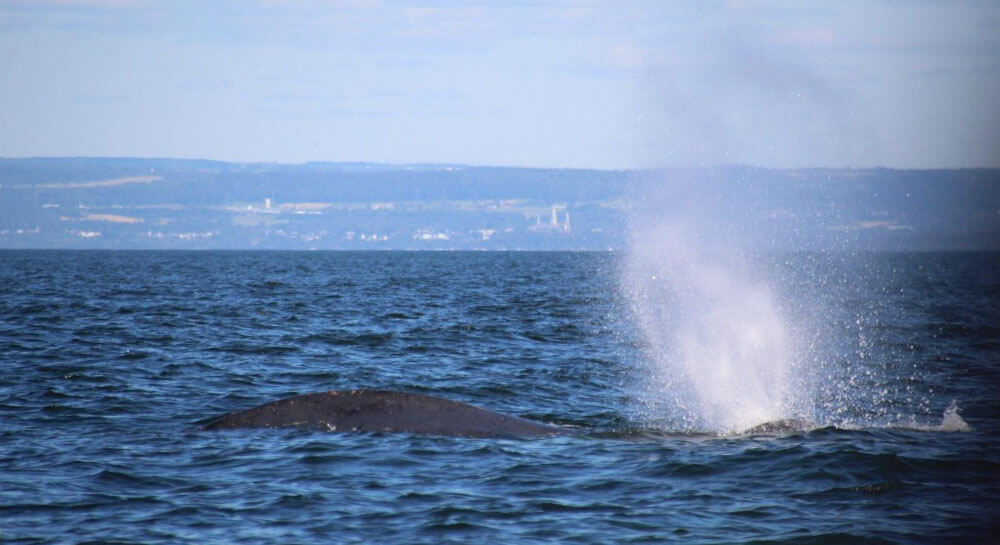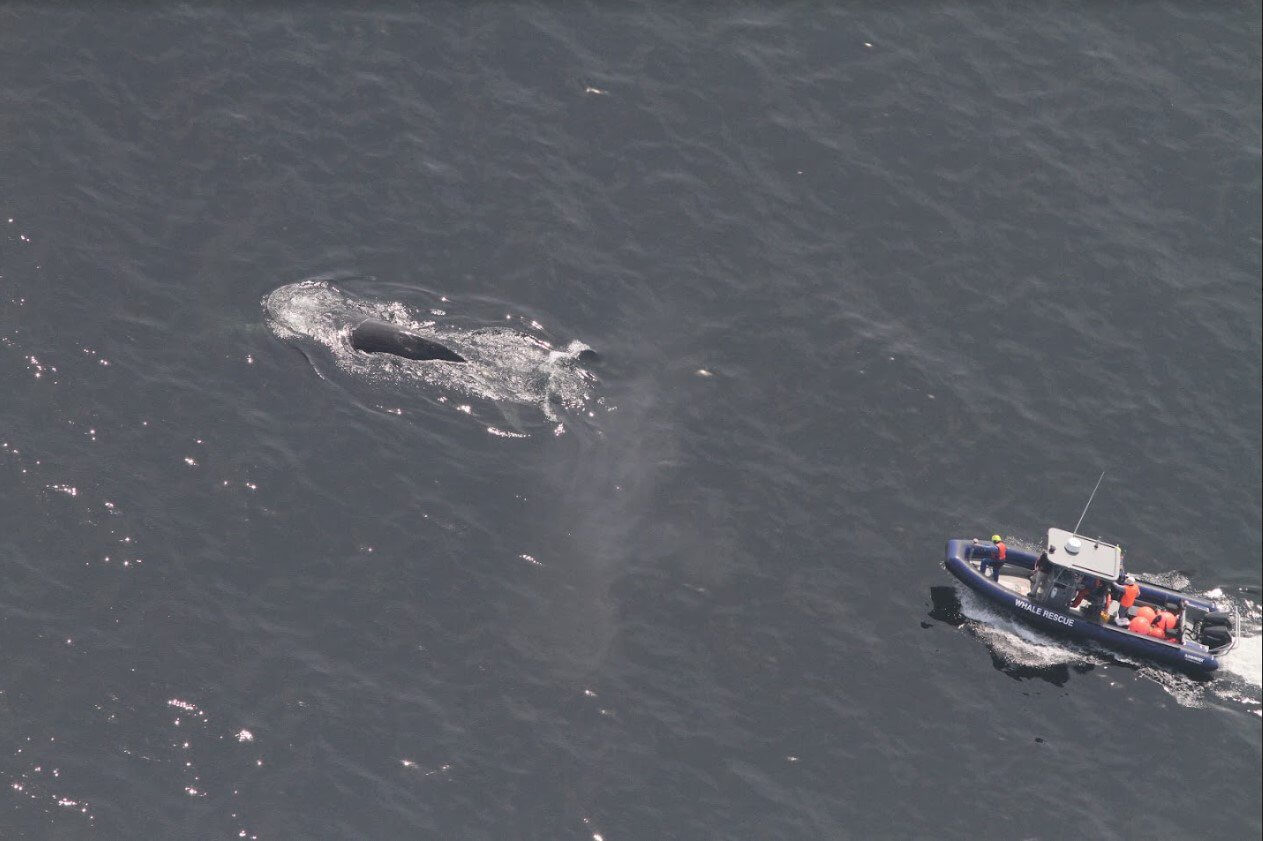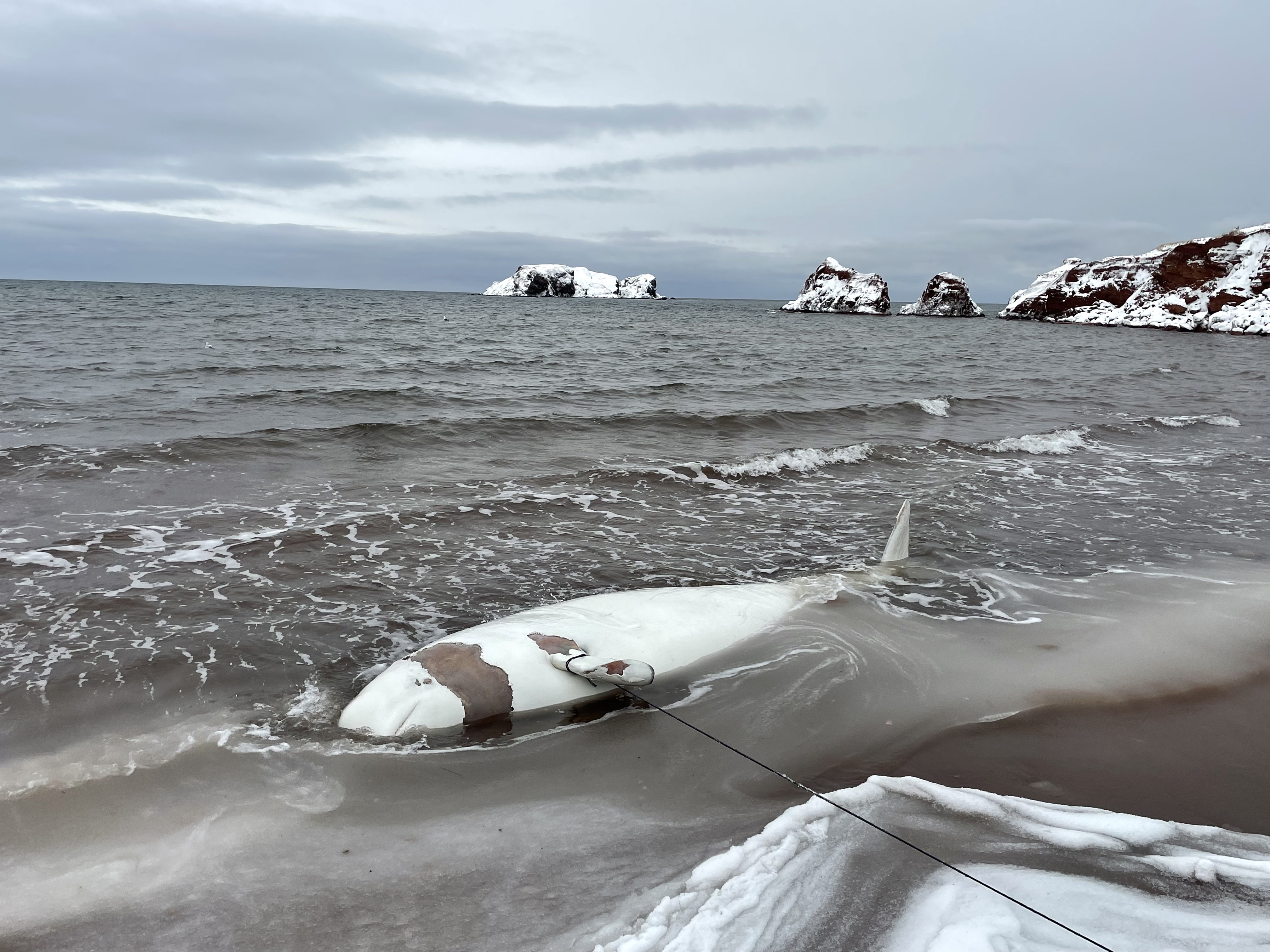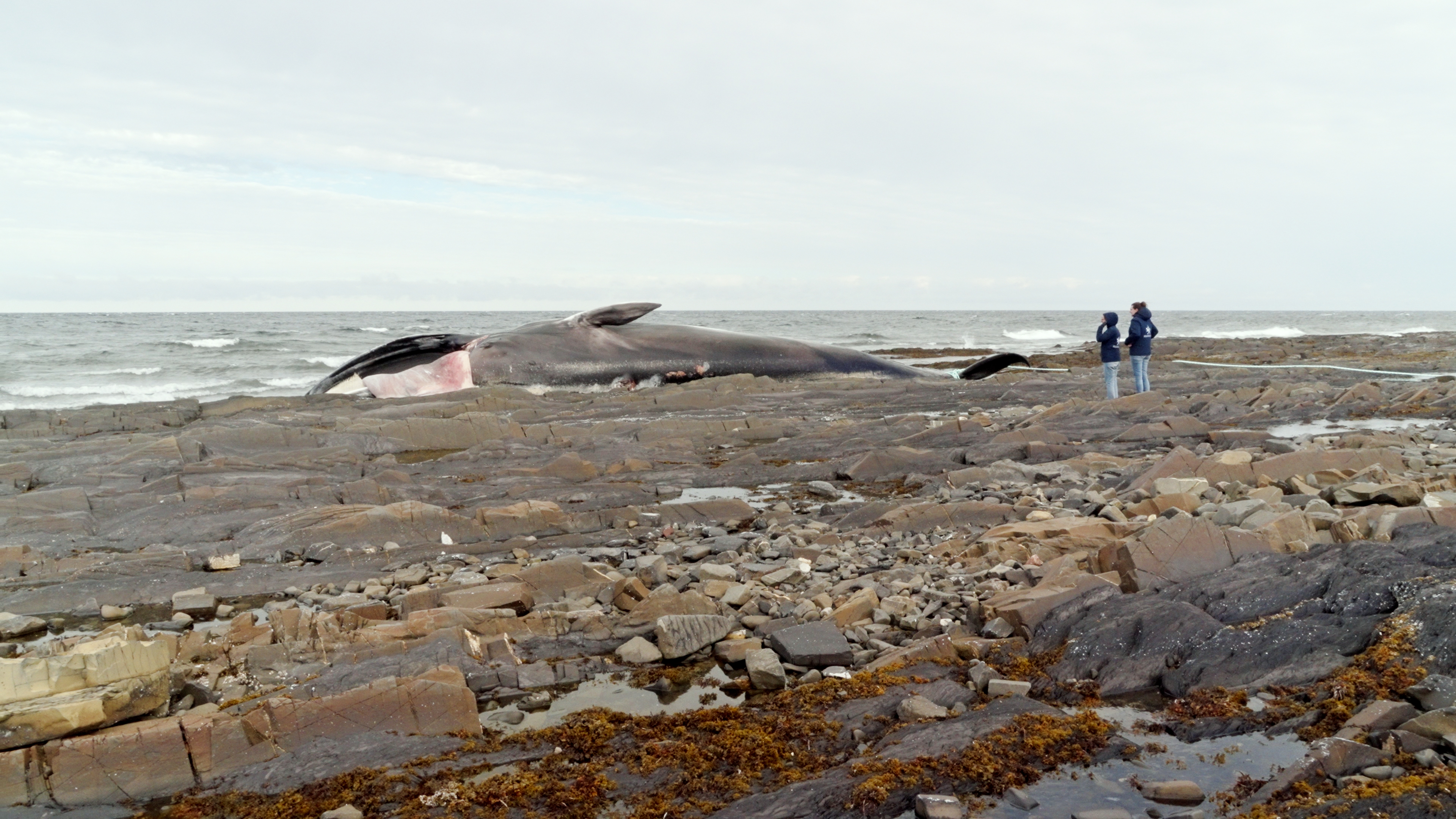Updated to August 25, 2020
Despite active search parties by fishery officers and collaborators, the entangled humpback whale was not seen again on August 24 in the Matane, Baie-Comeau, Pointe-des-Monts and Baie-Trinité sectors. Other free-swimming humpback whales were observed, but not the one who’s in trouble.
This morning, the weather deteriorated and warnings of strong winds kept the team ashore. In the absence of safe weather conditions, the search is temporarily halted.
Update on August 24
The struggling humpback whale was seen again on August 23rd off Godbout and Pointe-des-Monts. Fishery officers were able to contact the animal and confirm that it was indeed dragging rope. They are back on the water today to place a beacon on the whale to make it easier to follow.
The Campobello Whale Rescue Team, the experts in disentanglement, is on its way to help the animal. If all goes well, the disentanglement operation should start tomorrow.
The humpback whale showing abnormal swimming behaviour was reported to the Quebec Marine Mammal Emergency Response Network (QMMERN) four times between July 26 and August 17, 2020. It was not sighted again before August 23. Even though it appears to be in bad shape, it is managing to move, having travelled over 500 kilometres between the various points of observation.
When the whale was first sighted on July 26, the boaters who saw it cut* and recovered 30 metres of rope 25 feet from the animal before calling the Marine Mammal Emergencies line at 1-877-722-5346. However, the individual who severed the line is unable to confirm whether or not it was attached to the humpback. Since then, neither the photos nor the videos sent in by various witnesses have sufficed to confirm whether one or more lines are wrapped around the animal or whether it is injured. None of the testimony has made any reference to the presence of ropes, nets, traps or buoys on the whale.
Since July 26, the humpback has kept the Quebec Marine Mammal Emergency Response Network team on its toes. On July 27, fishery officers patrolled the area where the animal had been seen, but failed to locate it. Collaborators in the region were also notified, but also did not observe the animal.
On August 2, a second report reached the Network, this time from the Matane region. Following this second sighting, the Campobello Whale Rescue Team is on the alert to intervene with Fisheries and Oceans Canada fishery officers. This New Brunswick-based team is responsible for disentanglement operations in Quebec and the Maritimes, together with Newfoundland-based Whale Strandings and Release. However, despite the search efforts of our collaborator in the Matane area over the next few days, and following the adverse weather conditions brought on by Tropical StormIsaias, the animal was not spotted again until August 15. This time, it was 200 km farther upstream, in the Saguenay-St. Lawrence Marine Park.
On the afternoon of August 15, a report was made to the Network by Croisières Escoumins of an animal swimming strangely. A Navigational Warning is issued. However, it was the images submitted by an AML naturalist on August 17 that confirmed that it was the same humpback as the one seen in Port-Cartier and Grosses-Roches. Despite the presence of the whale-watching fleet, GREMM patrols and Parks Canada officers, the animal has not been spotted from August 17 to 23.
If you see the humpback in the water or from shore, your reports to 1-877-722-5346 are essential for the continued monitoring of this incident. Stay alert for this animal, which spends more time than average on the surface.
Why is expertise from the Maritimes and Newfoundland needed?
In Quebec, in order to free large cetaceans (humpbacks, fin whales, blue whales) caught in fishing gear, teams from neighbouring provinces must be called upon. Why is this? Because these interventions require extensive expertise and above all, hands-on practice. As entanglements are rather rare in Quebec, expert responders recommend calling on experienced teams rather than creating one that will not have sufficient opportunity to practice disentanglement operations year after year. This situation could change if entanglement cases increase.
Even in regions where a local team exists, interventions are seldom carried out on the day of the initial report. “In cases of entanglement involving large cetaceans, animals can swim for days, months or even years with ropes in tow. Entanglements that do not directly drown the animal can have long-term effects, which makes it important to intervene quickly. However, we have a certain window of time to attempt the disentanglement operations,” explains QMMERN coordinator Robert Michaud.
Fisheries and Oceans Canada fishery officers working in Quebec are trained to place satellite tags on entangled whales so that they can track their movements. “But to place a tag, you have to be able to locate the whale, which is not always as easy as one might think,” confirms Robert Michaud, who has worked with whales for over 35 years.






